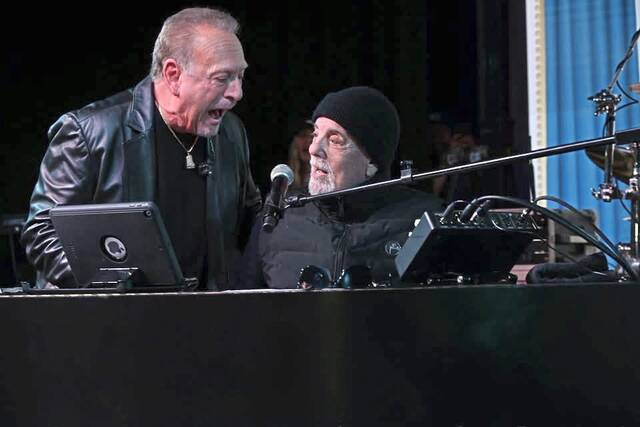The prosecutor acknowledged that it could be a series of coincidences that made the defendant look guilty.
Maybe the eyewitness got the identification wrong. And maybe Charles Pershing really did have bruises all over his body from allegedly getting into a fight that same day, like he claimed.
But what about the black eye on his face? It was in the same spot one of the victims said she struck him with her flat iron when trying to fend him off. The bruise wasn’t there around 1 a.m. when video surveillance showed him getting off a bus, but was there seven hours later, Deputy District Attorney Kevin Chernosky said.
Could all of that be coincidence, he asked jurors.
“The percentages drop dramatically,” Chernosky said.
Chernosky gave his closing argument Wednesday before Allegheny County Common Pleas Judge Kelly Bigley in the criminal homicide trial of Charles Pershing, 40, of Penn Hills, who is accused of a violent home invasion on Sept. 3, 2018.
Killed in the attack was Loxley Johns, 65.
Chernosky told the jury he believes that Pershing attacked Johns outside his Runnete Street home around 2 a.m. when Johns’ fiancée first heard noises outside. Police found evidence of a struggle on the porch, including a shattered chair and blood.
Johns’ fiancee, Monica McWilson, testified on Monday that it wasn’t until after 4 a.m. when she heard someone in her daughter’s room that something was amiss.
When McWilson went into the hallway, she said she saw a man she had seen a few times in the neighborhood. She struck him with her flat iron, but he subdued her, blinded her and bound her hands with zip ties.
When he finally left three hours later — telling her to wait 20 minutes before she called the police — she found Johns hogtied downstairs, having been severely beaten. He died two weeks later.
Throughout his closing, Chernosky listed the evidence against Pershing.
McWilson immediately was able to give a description to detectives of the man who she’d seen in the neighborhood a couple times before. She described him as white, average height and fit.
Then, when investigators approached Pershing, he was carrying McWilson’s daughter’s red duffel bag, which had been taken from the house. It contained family credit cards, Social Security cards and other items that had been taken from their home.
Pershing told police he found the bag when he got off his bus around 1 a.m. But Chernosky told the jury that was impossible, because the bag wasn’t taken from McWilson’s home until after 4 a.m.
Pershing also told police that he was home with his girlfriend at the time of the attack. However, his cell phone records show he made 14 separate, unanswered phone calls to her from 3 to 4 a.m., Chernosky said.
Defense attorney Christopher Joseph Marsili did not mention the phone calls during his closing argument.
Instead, he told the jury to focus on reasonable doubt in McWilson’s identification of his client.
In her interaction with the attacker, Marsili said, McWilson only saw the man for, at most, 45 seconds — in the middle of the night and with barely any lighting.
“Use your common sense,” he said. “She can’t see anything.”
Marsili said the prosecution failed to present any motive to the jury or any evidence of Johns having contact with Pershing that day.
“They need to connect the dots for you,” he said.
The defense argued that the prosecution failed to present any evidence that it was Pershing who stole anything out of the victims’ house that day. There were no eyewitnesses and no video, Marsili said, “nothing tangible to prove it.”
Marsili also asked the jurors to consider the fact that, as Pershing got off the bus that night on his way home from work, he was using crutches.
McWilson did not say that her attacker was using crutches or had any problem getting around.
“Does that give you reason to pause, even just a little bit?” Marsili asked. “Does that give you doubt, even just a little bit?”
But, in asking the jury for a conviction, the prosecutor said he cannot be held to a mathematical certainty. In the face of all the evidence, Chernosky said, he met his burden.
“Monica McWilson waited 20 minutes to cut herself loose as instructed,” Chernosky said. “She’s waited four years for this day.
“Don’t make her wait any longer.”








